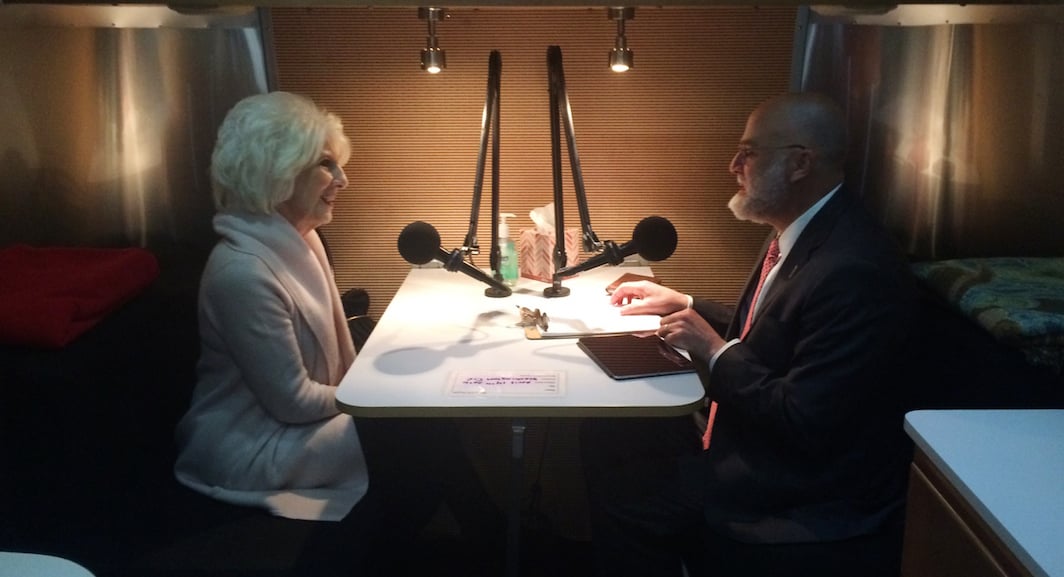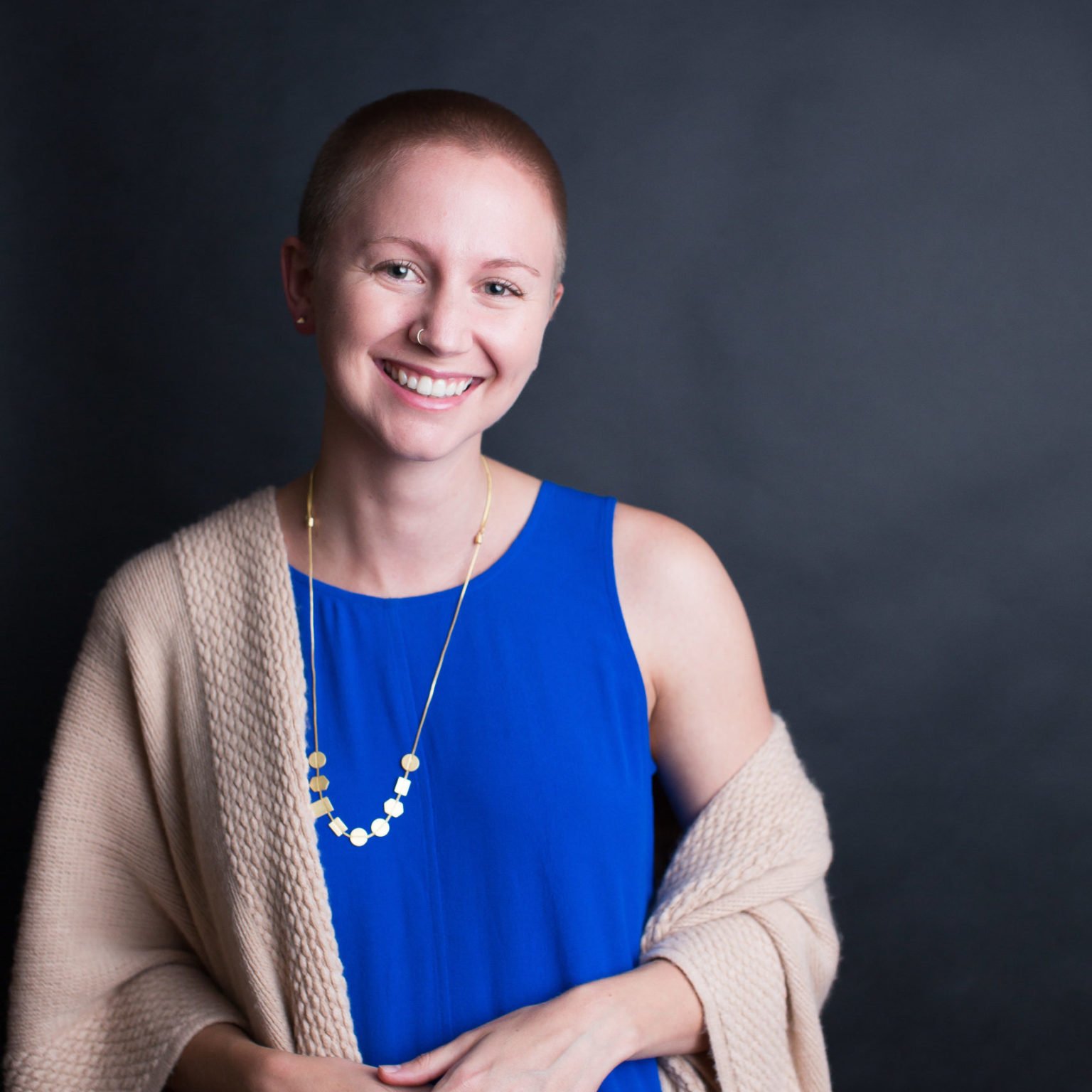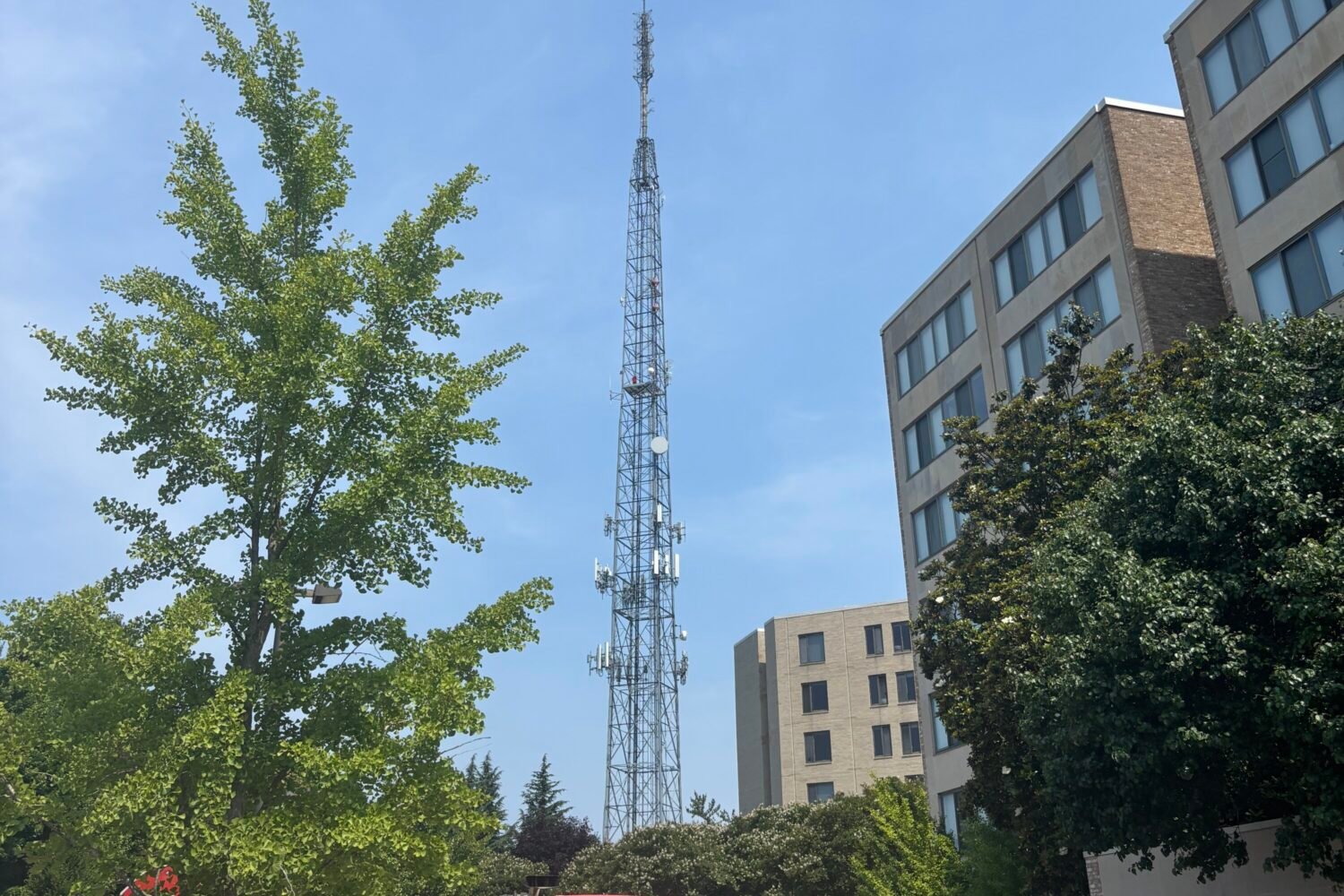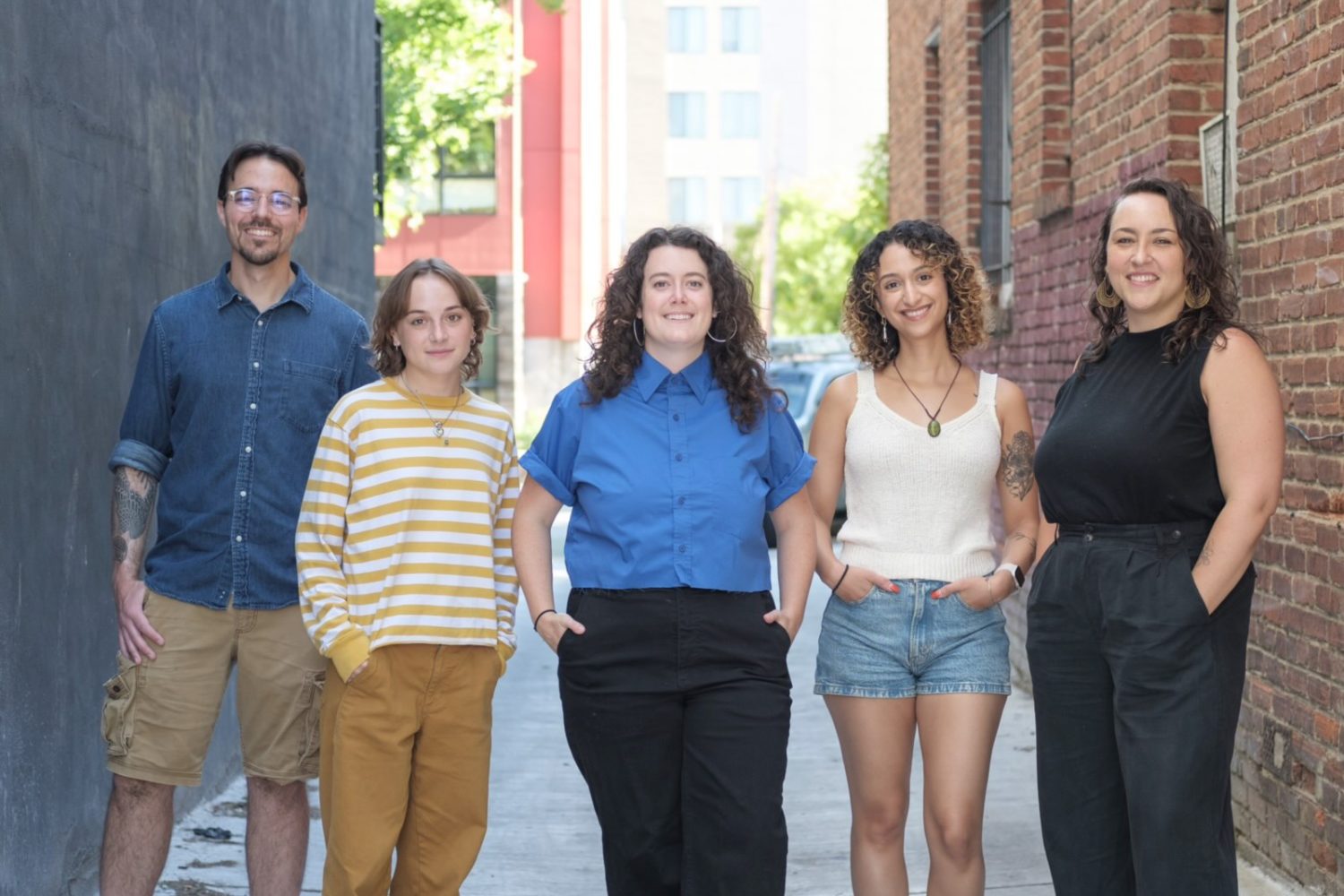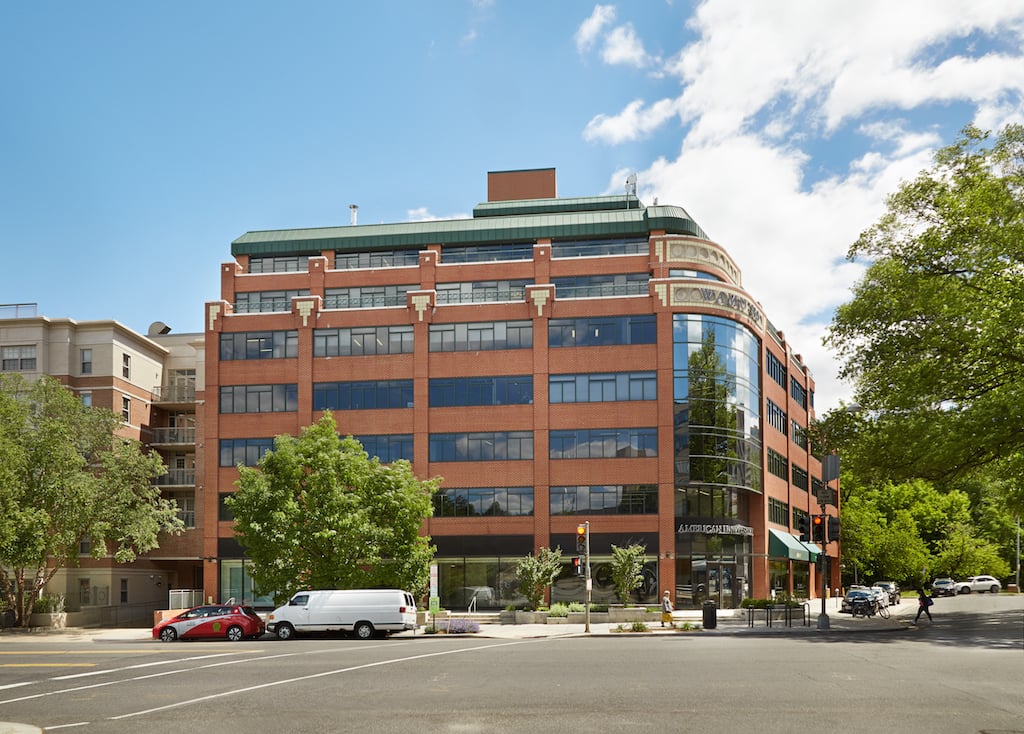When is the last time you talked face-to-face with a friend or family member for 40 minutes straight with no interruptions?
It’s a rare experience these days, and so are the memorable stories that come out it. StoryCorps, a non-profit oral history project whose mission is to record and archive American stories, knows this, which is why it’s traveling around the country in an Airstream trailer gathering as many conversations as it can along the way.
For its fourth stop this year, the trailer will be stationed in DC at the Library of Congress for five weeks starting on Thursday. During that time, StoryCorps facilitators will record seven conversations a day and share the audio with its partners at the Library of Congress’ American Folklife Center, which archives the material. Since the mobile tour launched in 2005, it’s collected more than 65,000 conversations in all 50 states. Some of those stories end up on WAMU as a part of NPR’s Morning Edition on Fridays.
On Thursday morning in the back parking lot of the Library of Congress, Diane Rehm and her son, David Rehm, were about to go into the trailer to record their 40-minute conversation. David Rehm had prepared a list of interview questions for his mother, including questions about what it was like growing up in an Arabic household in DC in the 1940s and ’50s, her early experience with education, and moving from motherhood into her career.
“David and I over the years have really been able to talk very intimately about things that have happened in his life and my life, so I’m really looking forward to this moment,” says Diane Rehm, the host of WAMU’s The Diane Rehm Show. After more than 30 years on the air, Rehm, 79, will retire after the 2016 presidential election.
“One of the things I’m trying to think of is what Mom’s audience needs to hear,” David Rehm says.
“But I think it’s also what you want to hear,” his mother added.
Stacey Todd, StoryCorps’ site manager for the mobile tour, says the trailer gives people a space to open up to friends and family and say things they’ve never said before. She and other facilitators are in the trailer with participants, though they try to be as much of a fly on the wall as they can. “How often do you get to stay in a room with strangers and witness their pure love for each other?” Todd says. “We consider the mobile booth a sacred space.”
Todd interviewed her mother when the trailer came through her hometown of Grand Rapids, Michigan. The first question she asked was what her mother’s first memory was. “Lighting my brother’s archery set on fire,” she responded.
The inside of the silver airstream trailer feels like a quiet reading room in a library. The lighting is low, the space is intimate—”special things happen in there,” Todd says.
“It feels like a massage parlor in there,” says Andi McDaniel, senior director of content at WAMU who’s help launching “StoryCorps local,” which will collect, edit, and air DC-focused stories. The Rehms’ interview will be the first one WAMU will air, in the late summer or early fall.
In order to get as many diverse voices as possible into the booth, StoryCorps partners with local outreach organizers. You have to make a reservation in advance to use the trailer, and they always fill up quickly. StoryCorps will open up another batch of DC recording slots Friday at 10 a.m.
So if you’ve always wanted to interview a grandparent, parent, sibling or friend but haven’t made the time, here’s your chance. The booth will be in DC until May 18.

